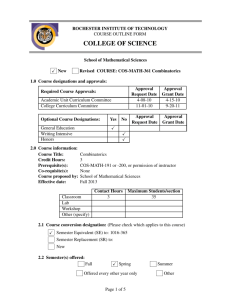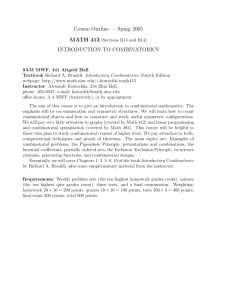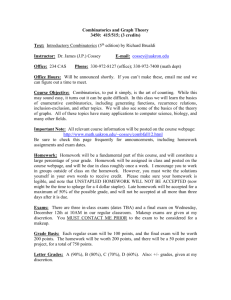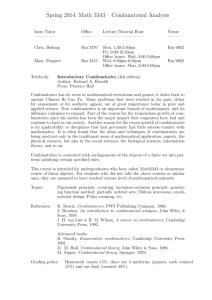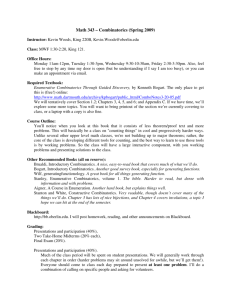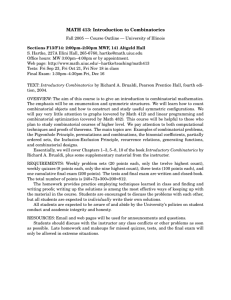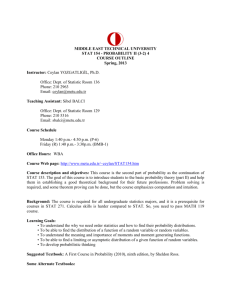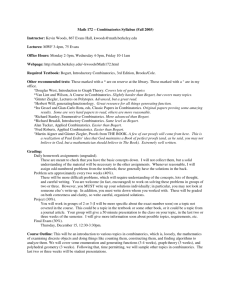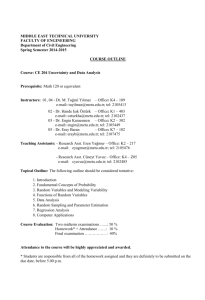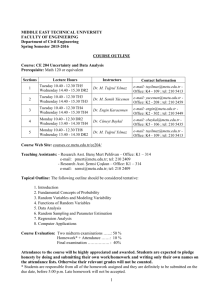IE 455 An Introduction to Combinatorial Analysis
advertisement
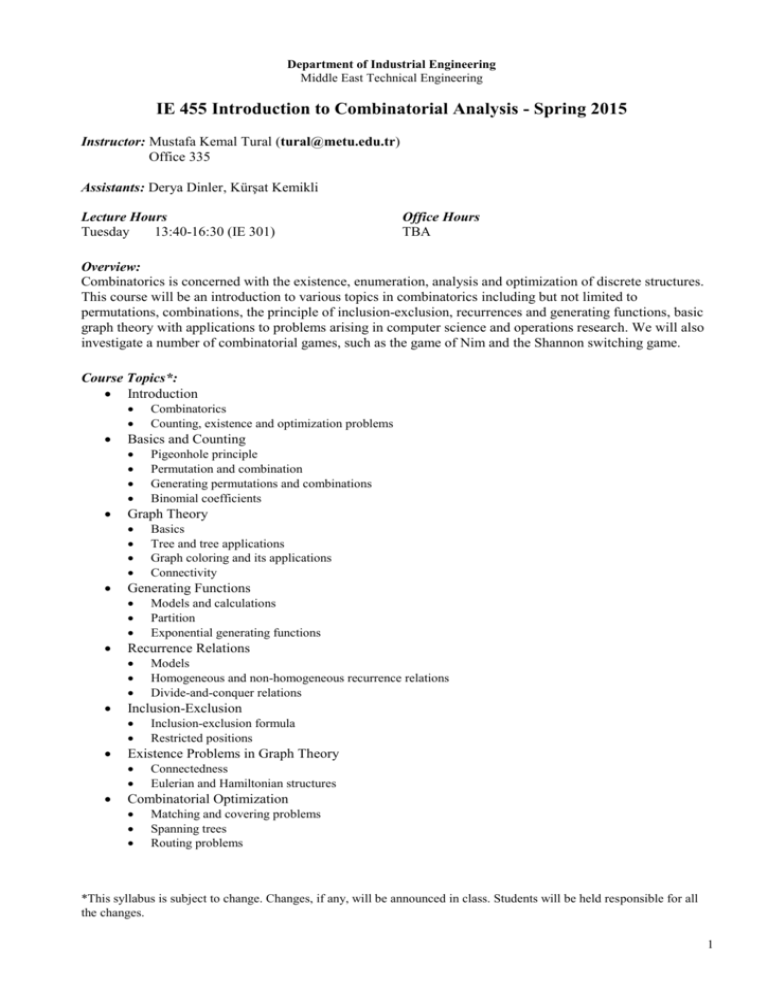
Department of Industrial Engineering Middle East Technical Engineering IE 455 Introduction to Combinatorial Analysis - Spring 2015 Instructor: Mustafa Kemal Tural (tural@metu.edu.tr) Office 335 Assistants: Derya Dinler, Kürşat Kemikli Lecture Hours Tuesday 13:40-16:30 (IE 301) Office Hours TBA Overview: Combinatorics is concerned with the existence, enumeration, analysis and optimization of discrete structures. This course will be an introduction to various topics in combinatorics including but not limited to permutations, combinations, the principle of inclusion-exclusion, recurrences and generating functions, basic graph theory with applications to problems arising in computer science and operations research. We will also investigate a number of combinatorial games, such as the game of Nim and the Shannon switching game. Course Topics*: Introduction Basics and Counting Inclusion-exclusion formula Restricted positions Existence Problems in Graph Theory Models Homogeneous and non-homogeneous recurrence relations Divide-and-conquer relations Inclusion-Exclusion Models and calculations Partition Exponential generating functions Recurrence Relations Basics Tree and tree applications Graph coloring and its applications Connectivity Generating Functions Pigeonhole principle Permutation and combination Generating permutations and combinations Binomial coefficients Graph Theory Combinatorics Counting, existence and optimization problems Connectedness Eulerian and Hamiltonian structures Combinatorial Optimization Matching and covering problems Spanning trees Routing problems *This syllabus is subject to change. Changes, if any, will be announced in class. Students will be held responsible for all the changes. 1 Reference books: (1) R.A. Brualdi, Introductory Combinatorics, 5th edition, Prentice Hall, 2009 (2) F.S. Roberts, Applied Combinatorics, Prentice Hall, 1984 (3) A. Tucker, Applied Combinatorics, 5th edition, John Wiley & Sons, NY, 2006 Grade Allocation: Homework Quizzes Midterm Exam Final Exam 25% 15% 30% 30% Attendance Attendance will be taken. Students are required to attend at least 60% of the classes in order to be able to take the final exam. Homework Each homework will carry equal weight. The lowest homework score will be dropped. Your semester average for homework will count as 25% of the course grade. Each homework will be strictly due at the beginning of class on the due date. No late homework will be accepted and there are no electronic submissions (unless specified otherwise). Missing homework will receive a grade of zero. Any homework not turned in at the regular class meeting must be deposited in the Instructor’s mailbox before 9:30 am on the due date. To receive full credit on homework, you must show all your work neatly, clearly label each problem, and STAPLE the entire assignment together in the order in which the problems were assigned, with your name and HW # printed on every page. Course Website The course website is hosted in the 'METU Online' course environment (https://online.metu.edu.tr/). METU Honour Code Every member of METU community adopts the following honour code as one of the core principles of academic life and strives to develop an academic environment where continuous adherence to this code is promoted. "The members of the METU community are reliable, responsible and honourable people who embrace only the success and recognition they deserve, and act with integrity in their use, evaluation and presentation of facts, data and documents." 2
